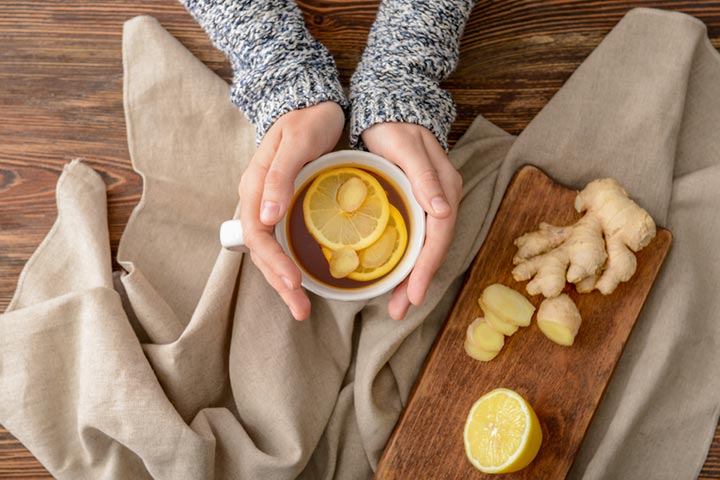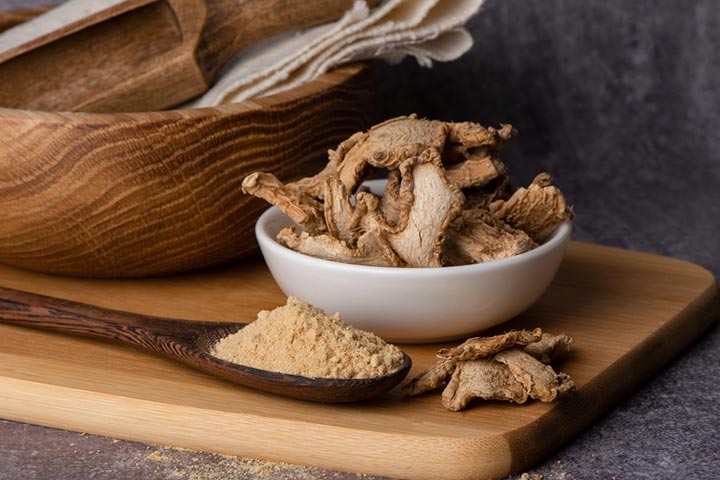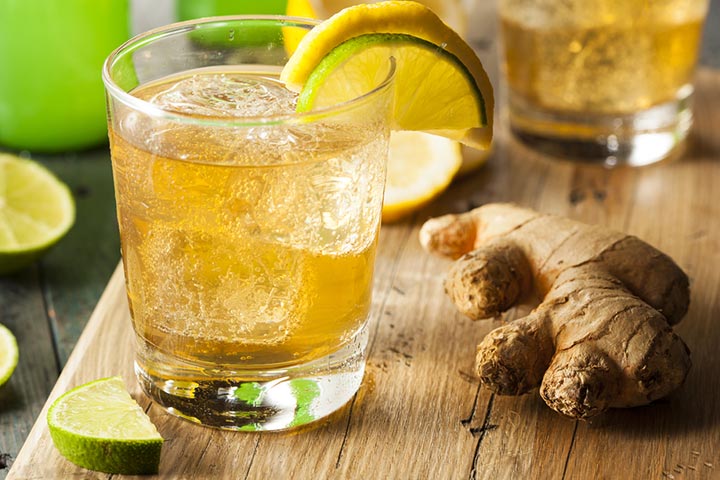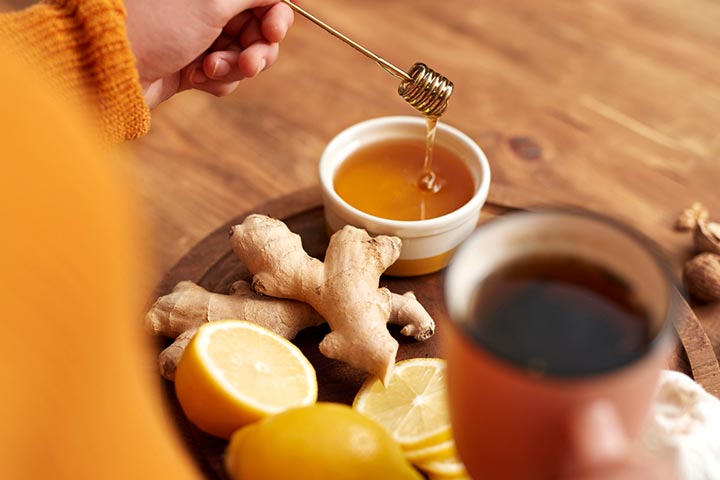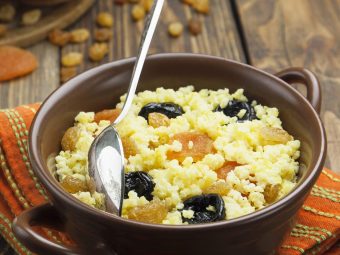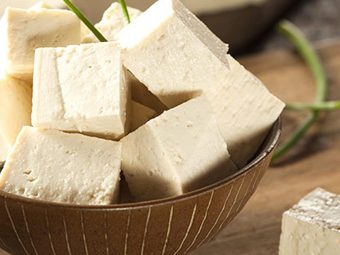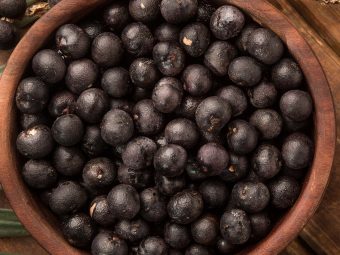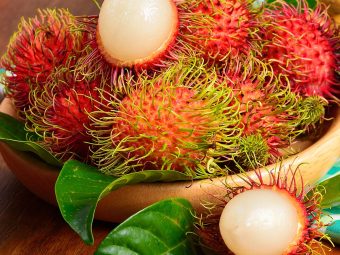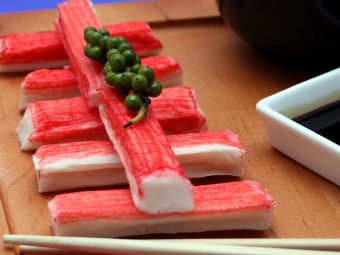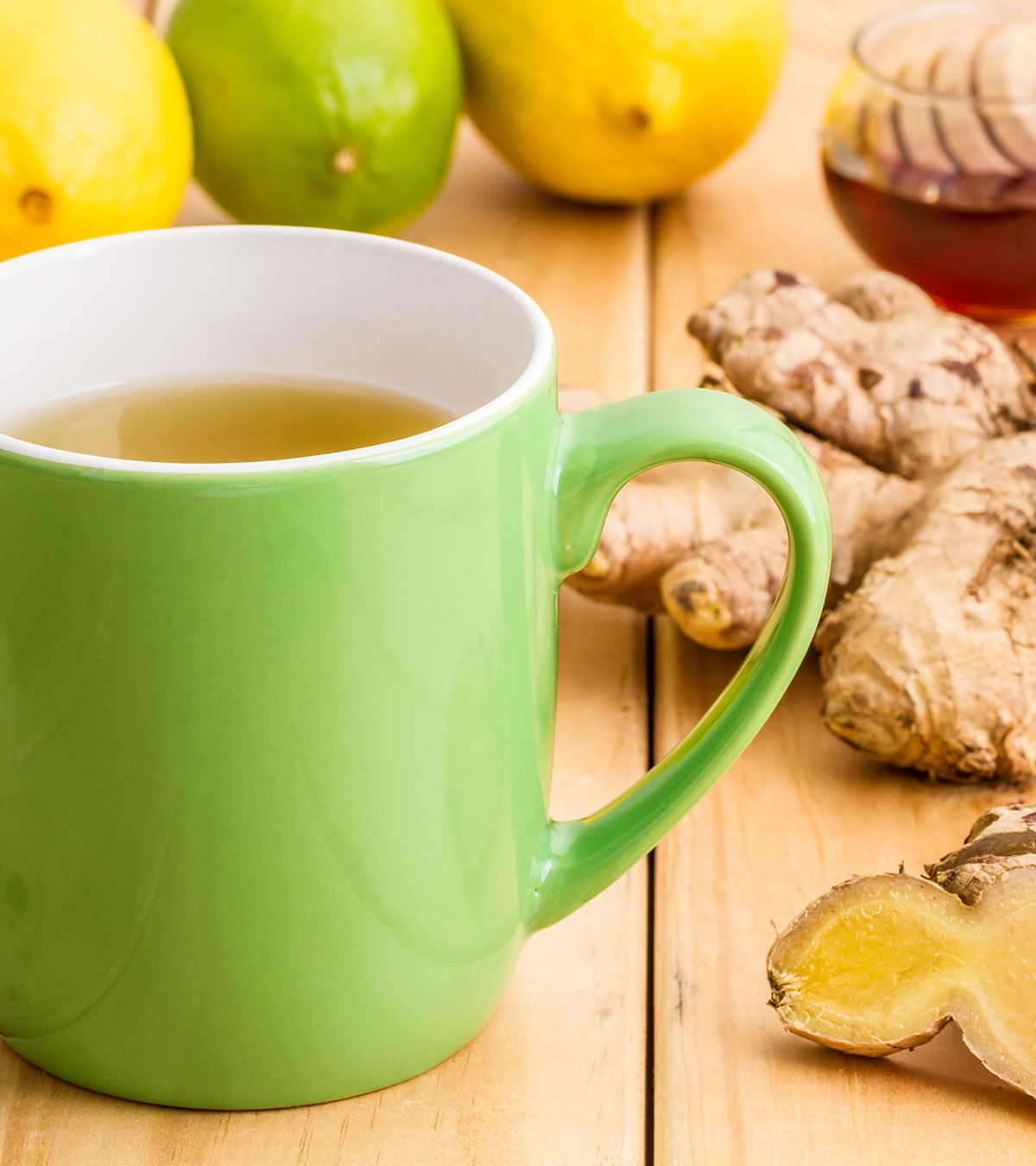
Image: Shutterstock
Ginger is a common condiment known for its distinctive flavor and fragrance. Naturopathy uses it to treat and manage ailments, such as migraineiXA headache with strong pounding pain or a pulsing sensation. , nausea, colds, and constipation (1). You may consider using ginger when breastfeeding for its purported galactagogueiXChemicals used to initiate, maintain, and promote milk production. effects. However, the research studies show mixed results. Several ginger-based dietary and herbal supplements are available over-the-counter as liquid extracts, teas, candies, and tablets.
If you wish to try them for lactation-related purposes, consulting an expert is necessary. Read on as we tell you more about the safety of ginger for breastfeeding mothers, its effect on breast milk supply and flavor, its possible health benefits, side effects, and ways to consume it safely.
Is Ginger Safe When Breastfeeding?
Image: Shutterstock
According to the US Food And Drug Administration (USFDA), using ginger as a spice is “generally regarded as safe (GRAS)” for breastfeeding mothers, postpartum (2).
The consumption of ginger as a spice or herbal remedy is usually safe and does not have any adverse effects on the baby’s health. Those with a sensitive digestive system may experience mild gastrointestinal issues, such as abdominal discomfort, heartburniXA burning sensation in the chest when food and stomach acid reflux back into the esophagus. , diarrhea, and gas (3). Breastfeeding mothers with sensitive digestive systems may consider consuming small quantities of ginger only as a spice.
Does Ginger Increase Breast Milk Supply?
The use of ginger as a lactogenic food is prevalent in traditional medicine. However, there is mixed scientific evidence about its lactogeniciXAbility to stimulate milk secretion. effects (2) (4). According to research, ginger may work as a galactagogue for some breastfeeding women but may show no effect on others. However, every breastfeeding mom is unique and may react different to any potential galactagogue. If you wish to use ginger as a dietary supplement for lactation-related purposes, consult a lactation consultant.
Does Ginger Affect The Flavor Of Breast Milk?
Research studies show that maternal consumption of strongly flavored foods and spices may affect the flavor of breast milk within hours after ingestion (5). The chances of ginger affecting the breast milk’s flavor are likely, although the clinical evidence to support this assumption is sparse.
Different babies have varying degrees of tolerance to changes in breast milk’s flavor. A few infants can be sensitive and may act fussy and refuse to breastfeed. If your infant becomes fussy while breastfeeding, feeds less than usual, or refuses to feed after you consumed ginger, discontinue ginger use and see if the situation improves. If the problem persists, consult a lactation expert or a pediatrician.
Possible Health Benefits Of Ginger For Nursing Mothers
Image: Shutterstock
Chemical analysis of ginger shows that it has over 400 different compounds, including terpenes, phenolics, and phytosterolsiXNatural substances derived from plants that can decrease cholesterol levels in the body. (6), that may provide the following health benefits to a nursing mother in the long run.
- Reduce nausea: Some mothers may experience nausea or morning sickness during the first few days after delivery. Research shows that ginger may relieve nausea and vomiting in such cases (1) (7).
- Support digestion: Clinical studies show that ginger can reduce intestinal cramping and prevent bloating and flatulenceiXReleasing gas from the digestive tract through the back passage. (6). It may also help improve the overall gastrointestinal motility.
- Reduce oxidative stress: Reduce oxidative stress: Ginger contains high amounts of total antioxidants and bioactive compounds. These can help reduce oxidative stress and maintain overall health in the long run(8) (9). According to a study by researchers from multiple universities, ginger rhizome extracts possess significant antioxidant properties, with their efficacy ranging from 86.7% to 97.47%.
- Alleviate pain:The anti-inflammatory effects of ginger may help in conditions of chronic pain, such as dysmenorrhea (menstrual cramps)(1) (10). The pain-relieving property of ginger is attributed to its bio active compounds.
- Boost immunity: Fresh ginger has shown effectiveness against the human respiratory syncytial virus (HRSV), which causes respiratory issues, such as the common cold (11). Other studies indicate ginger’s antioxidant, antimicrobial, anti-fungal, and antiviral properties (8) (12) that may strengthen the immune system in the long run.
- Alleviate allergy symptoms: The use of ginger in treating and managing allergies is prevalent in traditional medicine. Research studies note that ginger may help manage the symptoms of some forms of allergy, such as allergic rhinitisiXNasal inflammation caused by an allergen, such as dust, pollen, mold, or skin flakes. (13).
 Research finds
Research findsGinger is also considered to have hepato protective, cardio protective, and anticancer effects (1) (14). However, many of these effects are still under research and need significant clinical validation.
Possible Side Effects Of Ginger When Breastfeeding
The consumption of small doses of fresh or dried ginger seldom causes any side effects. However, in some cases, ginger may cause the following side effects.
- Drug interaction: Ginger may interact and interfere with the effects of a few drugs, like those for blood thinning and diabetes (15) (16). If you are on any medication, consult a doctor before adding ginger to your diet.
- Gallstone: Some experts believe that ginger may increase the flow of bile (3). Those with gallstone disease or gall bladder complications should consult a doctor before consuming ginger.
- Allergic reactions: In rare cases, ginger may trigger an allergic reaction in genetically predisposed individuals (17). If you have a family history of Zingiberaceae allergy (turmeric, cardamom, and alligator pepper), consult a doctor before adding ginger to your diet, especially if you never had ginger before.
Consuming ginger in small doses as a spice or a natural medicine may not lead to side effects. However, if you have it in the form of ginger supplements or medicinal herbs, you might end up taking it in higher amounts, leading to some problems. Do not take ginger supplements while breastfeeding without consulting a doctor.
How To Consume Ginger When Breastfeeding?
Image: Shutterstock
Here are some of the common ways to consume ginger while breastfeeding.
- Ginger root: You can use fresh and dried ginger root as a condiment in dishes and drinks. Add grated, minced, or chopped ginger root to curries, soups, salad dressings, puddings, and beverages, like lemonade and vegetable juice.
 Quick tip
Quick tip- Ginger ale: The refreshing caffeine-free beverage can be made at home with ginger and added sweeteners, like brown sugar or honey. You may also use ginger ale ready-mix available over-the-counter. Check the ingredients if you pick ready-mix or ready-to-drink versions since some of them have artificial ginger flavoring or may contain alcohol.
Image: Shutterstock
- Ginger tea: Ginger tea is made from fresh or dried ginger and can relax the body. You can prepare this tea at home with fresh ingredients. If you are buying packaged herbal ginger tea, check the ingredients thoroughly.
How To Make Ginger Tea?
Image: IStock
Here are simple steps to make warm and soothing ginger tea at home.
- Boil water in a teapot on medium flame.
- Cut a few slices of ginger and add them to the boiling water.
- Remove the teapot from the stove and keep it aside for five minutes.
- After five minutes, remove ginger slices, pour it into the cup, and the tea is ready.
- Add brown sugar or pasteurized honey if the tea tastes strong.
- You could also add a few drops of fresh lemon juice to add a citrus flavor to the tea.
Frequently Asked Questions
1. Can a breastfeeding mother take lemon water?
Yes. You may have lemon water while breastfeeding, as it helps keep you hydrated and prevents digestive issues (18).
2. Does ginger beer help with breast milk?
Sufficient scientific evidence is unavailable to prove that ginger beer enhances breast milk production.
3. Does ginger cause jaundice while breastfeeding?
There is no scientific evidence to prove that having ginger while breastfeeding can cause jaundice in the baby (19).
The combination of ginger and breastfeeding can be helpful. It can be added to various foods and beverages to provide taste and health benefits to the breastfeeding mother. You can add fresh and dried ginger to curries, soups, salad dressings, or beverages, like tea, as a flavoring agent, and it works splendidly in bringing a refreshing essence. Its consumption in moderation as a part of a healthy diet could benefit breastfeeding mothers and their babies over time. However, if you are not sure of the effects it may have, you may consult your doctor and learn more about the quantity that can be considered safe for your consumption.
Infographic: Health Advantages Of Ginger For Breastfeeding Women
Ginger is a well-known spice and herb globally known to possess several health-promoting benefits. So, if you’re thinking of including it in your diet while breastfeeding, look at the infographic below and learn some health benefits of ginger before deciding. Illustration: Momjunction Design Team
Key Pointers
- Ginger, when consumed in moderate amounts, can be beneficial for lactating mothers.
- It may help treat digestive problems, boost immunity, and reduce allergy symptoms.
- Excessive intake of ginger can cause diarrhea, bloating, and other health problems while nursing.
- Therefore, limited intake of ginger, such as in the form of tea or ale, is considered safe while breastfeeding.
Explore the advantages and potential drawbacks of incorporating ginger into your pregnancy routine. Acquire accurate information regarding ginger’s positive impact on both maternal and fetal well-being.
References
1. Chapter 7 The Amazing and Mighty Ginger; Herbal Medicine: Bio molecular and Clinical Aspects. 2nd edition.; NCBI
2. Ginger; Drugs and Lactation Database; NCBI
3. Ginger; NCCIH; US Department of Health And Human Services
4. PanwaraParitakul et al.; The Effect of Ginger on Breast Milk Volume in the Early Postpartum Period: A Randomized, Double-Blind Controlled Trial; NCBI
5. Joanne M Spahn et al.; Influence of maternal diet on flavor transfer to amniotic fluid and breast milk and children’s responses: a systematic review; NCBI
6. MehrnazNikkhahBodagh et al.; Ginger in gastrointestinal disorders: A systematic review of clinical trials;NCBI
7. Neeru Bhatt et al.; Ginger: A functional herb; Research gate
8. Qian-Qian Mao et al.; Bioactive Compounds and Bioactivities of Ginger (Zingiberofficinale Roscoe); NCBI
9. Tessa Therkleson; Topical Ginger Treatment With a Compress or Patch for Osteoarthritis Symptoms; NCBI
10. ParvinRahnama et al.; Effect of Zingiberofficinale R. rhizomes (ginger) on pain relief in primary dysmenorrhea: a placebo randomized trial; NCBI
11. An Inside Scoop on the Science Behind Chicken Soup and the Common Cold; UCLA
12. PonmuruganKaruppiah and ShyamkumarRajaram; Antibacterial effect of Allium sativum cloves and Zingiberofficinale rhizomes against multiple-drug resistant clinical pathogens; NCBI
13. Yoshiyuki Kawamoto et al.; Prevention of allergic rhinitis by ginger and the molecular basis of immunosuppression by 6-gingerol through T cell inactivation; NCBI
14. Ginger – A potent root; Pennington Biomedical Research Center
15. Julie L. Ryan and Gary R. Morrow; Ginger; NCBI
16. Can everyday spices make you healthier?; Harvard Health Publishing
17. Allergy to ginger with cysteine proteinase GP-I as the relevant allergen; Annals of Allergy, Asthma, and Immunology
18. Abdominal Bloating? Why Water With Food is Bad, Pineapple is Good; Hartford Healthcare
19. Eating right for Breastfeeding; Health Hub
20. Ginger; Mount Sinai






